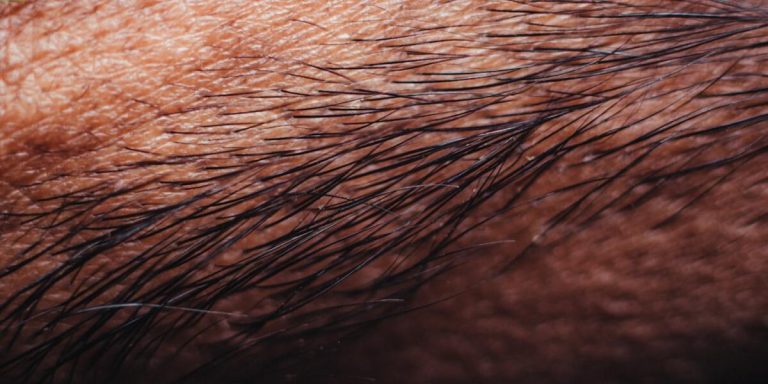Can Steroids Cause Hair Loss? Exploring the Connection and Evidence
While most people associate steroids with muscle growth and improved physical performance, many remain unaware of the potential for adverse effects. One intriguing question that often surfaces is “can steroids cause hair loss?” This issue deserves comprehensive exploration due to its possible implications on an individual’s overall appearance and self-perception.
Hair loss from steroid use isn’t a widely discussed topic but indeed it exists within scientific literature and anecdotal evidence alike. It’s essential to shed light on this subject matter in order to raise awareness about how a quest for athletic or aesthetic enhancement can unintentionally lead down the path towards undesirable side-effects such as hair thinning or baldness.
Did you know?
A lesser-known fact is that Anabolic steroids, often used for muscle-building and athletic performance enhancement can indeed cause hair loss. According to a study published in the Journal of Dermatological Science, these drugs increase levels of hormones linked to pattern baldness, leading to irreversible damage.
Understanding the Impact of Steroids on Hair Health
Steroids, particularly anabolic steroids often used for bodybuilding and performance enhancement, have been known to exact a significant toll on hair health. While it might seem surprising that substances taken primarily by athletes could result in such an issue as mundane as hair loss, the intricate link between internal biochemistry and visible exteriors is not to be underestimated.
Taking steroids interferes with the hormone balance within our bodies – specifically raising testosterone levels above natural limits. This artificially induced hormonal imbalance can trigger diverse side effects including aggression and mood disorders; however nothing seems quite so visibly perturbing as losing one’s crowning glory – their hair.
Many factors contribute to overall hair health, such as diet, genetics, and exposure to harsh environmental conditions like pollution or extreme sun’s UV radiation. However, introducing foreign substances like steroids can disrupt this delicate balance. This disruption can lead to an increased chance of thinning hair or outright baldness in both men and women due to its significant impact on male hormones.
If you are using these drugs without considering the long-term consequences, reconsider before continuing. Steroid-induced hair loss is not just medical jargon; it’s a real outcome associated with the non-judicious use of these potent compounds.
The Correlation Between Anabolic Steroids and Hair Thinning
Anabolic steroids, powerful synthetic versions of the male hormone testosterone, have been linked to numerous health issues and side effects. One often overlooked concern is their potential impact on hair health. Some users may ask: can steroids cause hair loss?
While not everyone will experience this undesirable effect, research shows that there’s a palpable correlation between anabolic steroid usage and thinning locks.
To start with, think about how your body reacts when you flood it with additional hormones such as testosterone from using anabolic steroids in 2023. Essentially what happens here is twofold; first off on overdose our natural hormonal balance gets disrupted which makes way for Dihydrotestosterone (DHT), a derivative product of regular testosterone to take hold.
Now comes the twist! It appears that DHT has somewhat of a vendetta against hair follicles – at least those genetically predisposed towards sensitivity to its mechanisms. Focusing particularly on these vulnerable key zones like crown area or frontal line regions where we usually notice bald patterns emerging sooner than other parts.
How Corticosteroids Influence Your Scalp’s Well-being
Corticosteroids, popularly known as steroids, are widely used in the medical field to manage inflammation and boost immunity. However, little is understood about their effects on scalp health and hair growth patterns. One of the critical questions that many ask today is “can steroids cause hair loss?” Let’s explore this further.
First off, it’s important to acknowledge that not all steroid usage will result in hair loss or thinning strands. The outcomes can vary significantly based on factors such as genetic predisposition towards baldness (especially male pattern baldness), duration of use, frequency and dosage levels among others.
On a physiological level though we must remember how our body works: Hair follicles go through cycles – periods of growth followed by resting stages where they shed old hairs before growing new ones again. Steroid consumption might disrupt these natural rhythms leading potentially damaging repercussions for your tresses causing premature shedding or disrupting new growth processes altogether!
Moreover cortisol —our so-called ‘stress hormone’— also plays an indirect role here due its stress managing functions when released during times pressure situations like illness etc., which put certain sections into overdrive hence accelerating ageing process within those particular cells responsible maintaining healthy locks thus negatively affecting overall condition one’s crown glory!
Hormonal Imbalances and Hair Loss: Unveiling the Connection
Many people around the world suffer from hair loss, and identifying the underlying cause is essential for finding a proper solution. Hormonal imbalances due to steroid use are often overlooked as a trigger for hair fall.
People use steroids in medical treatments or for fast muscle growth, especially bodybuilders. They might not initially understand that steroids can lead to severe side effects such as hair thinning or baldness.
Steroids alter hormone levels in our bodies, disrupting natural bodily functions. They affect our hair—our crowning glory. Steroids related to testosterone can speed up male-pattern balding in both men and women by converting into Dihydrotestosterone (DHT). This potent form of testosterone shrinks follicles, making it difficult for healthy strands to survive and leading to inevitable fallout.
Moreover with long-term use, steroids can potentially disrupt essential vitamin absorption necessary for maintaining lustrous locks which further compounds any pre-existing conditions contributing negatively towards your mane’s health status.
These potential adverse outcomes presents as substantial evidence emphasizing how pivotal it becomes understanding interconnections between hormones and proper hair care especially amid prevalent steroid consumption patterns today(2023).
DHT: The Androgen That Spells Trouble for Hair Follicles
Steroids boost the production of hormones like DHT in your body. This increase may seem harmless but when it comes to our tresses, they can be a real villain.
The science behind this starts with testosterone – the male sex hormone which exists both in men and women. When we introduce steroids into our bodies, these substances stimulate more conversion of Testosterone into DHT by triggering the enzyme 5 alpha-reductase found mostly in scalp tissue.
Unfortunately, some people have what experts call ‘DHT-sensitive’ hair follicles. These particularly sensitive types suffer greatly under high levels of DHT concentration resulting from steroid consumption leading them on a path towards temporary or even permanent baldness.
But how does it really affect your strands? Here are two main ways:
2) Life cycle disruption: With continued exposure to excessive amounts of steroid-induced-DTH could also significantly shorten the lifespan lifecycle phases (anagen phase – growth stage; telogen phase – resting stage). The faster movement from growth to rest results ultimately leads less growing time causing falling out sooner than expected shrinking overall volume considerably.
Estrogen Levels and Their Role in Hair Growth Cycles
Estrogen, one of the vital hormones in our bodies, plays a significant role in hair growth cycles. Imbalances can cause a wealth of health issues – including hair loss.
Fluctuation or drastic changes in estrogen levels have been directly related to unique patterns and episodes of thinning or shedding hair. This is evident predominantly among women due to specific life stages like pregnancy and menopause where hormonal shifts are at peak.
Now you may wonder- Can steroids cause hair loss? The answer lies again within the realm of hormone fluctuations caused by these substances. Steroids often manipulate testosterone level which indirectly influences Dihydrotestosterone production (known as DHT)- responsible for shrinking follicles leading to progressive baldness overtime especially if there’s genetic predisposition.
What follows next is crucial; identifying such imbalances early on helps prevent further complications through appropriate measures such as lifestyle adjustments, nutritional supplements or medical treatments targeted specifically at maintaining balanced hormonal profiles recommended by healthcare professionals.
In summary, understanding how different types of hormones influence various biological processes is essential when searching for effective remedies against common conditions like patterned alopecia triggered primarily due steroid abuse amidst other factors coming into play during 2023 and beyond.
Identifying Drug-Induced Alopecia: What You Need to Know
Drug-induced alopecia is a term that’s becoming increasingly popular in today’s health-conscious society. It refers to hair loss caused by certain medications, including steroids which are commonly prescribed for various medical conditions. While they can be beneficial in treating these ailments, the unfortunate fact remains: steroids could potentially cause hair loss.
The science behind this phenomenon has its roots in how drugs like steroids affect your body’s normal functioning cycle of hair follicles. Steroids tend to disrupt this natural process, leading to an accelerated phase shift from growth (anagen) into rest (telogen). The result?
An increase in shedding and ultimately noticeable thinning or baldness on parts of your scalp.
But here comes the good news – not everyone who takes steroid medication will experience drug-induced alopecia! The effects vary depending largely on individual factors such as genetics, overall health condition and dosage levels taken over time. Being informed about potential side-effects coupled with regular consultation with healthcare professionals significantly reduces instances of unsolicited surprises related to steroid use.
An Overview of Medications Known to Trigger Hair Shedding
Alopecia, also known as hair loss, can be triggered by several factors. Notably “can steroids cause hair loss” is a question that resurfaces often when discussing medication-related alopecia. With numerous people worldwide relying on various medications for different health conditions, it’s paramount to understand their potential side effects.
To start with, anabolic steroids – commonly used in muscle-building and performance-enhancing drugs – are notorious culprits behind hair shedding. These compounds accelerate the conversion of testosterone into dihydrotestosterone (DHT), which adversely affects the follicles leading to thinning or balding.
Other categories of medicines like anticoagulants (blood-thinning drugs) have also been implicated in cases of drug-induced alopecia. Specifically designed to prevent blood clots formation, these pharmaceuticals may inadvertently disrupt normal hair growth cycles resulting in substantial fallout post 2-3 months of therapy initiation.
Antidepressants are another set worth mentioning here; selective serotonin reuptake inhibitors (SSRIs) such as fluoxetine or sertraline might induce temporary excessive shredding colloquially termed ‘telogen effluvium.’ This phenomenon usually rectifies itself once your body adjusts fully to the treatment regimen but could persist if there’s pre-existing genetic predisposition towards baldness.
Steps to Mitigate Drug-Related Hair Loss Effectively
Mitigating drug-related hair loss involves proactive steps that are as simple as they are effective. If you’re concerned about the effects of medication on your locks, especially wondering whether steroids could cause hair loss, this segment will definitely enlighten you.
Let’s dive deeper into how one mitigates these effects:
If spotting strands of your precious mane more than usual, don’t hesitate to consult your healthcare provider immediately—especially if you’ve recently started any new medication including but not limited to steroids.
Get a detailed review regarding potential interaction between different medicines which might increase side-effects like hair fall caused by single medicine use alone; having thorough knowledge arms us better against negative health impacts.
Besides countering harmful medicinal impact consider adopting ‘hair-healthy’ lifestyle habits inclusive balanced diet protein vitamins vital nourishing hairs good sleep exercise reduced stress levels further preventing excessive damaging fallout.
Conclusion
In essence, the query “can steroids cause hair loss” isn’t a myth. The connection is scientifically substantiated and real. Steroids can indeed trigger various hormonal changes in your body which may lead to hair thinning or baldness.
However, this doesn’t mean you need to outright avoid them if they’re necessary for medical purposes.
Remember, knowledge is power – understanding underlying causes of such side effects will help manage preventive strategies more effectively. If you’ve found this article insightful and are interested in discovering more about prevalent “hair loss causes,” feel free to browse our website’s extensive resources dedicated entirely on tackling these hairy situations! We promise it won’t be another horror story; instead will act as a comprehensive guide designed just for your needs.







